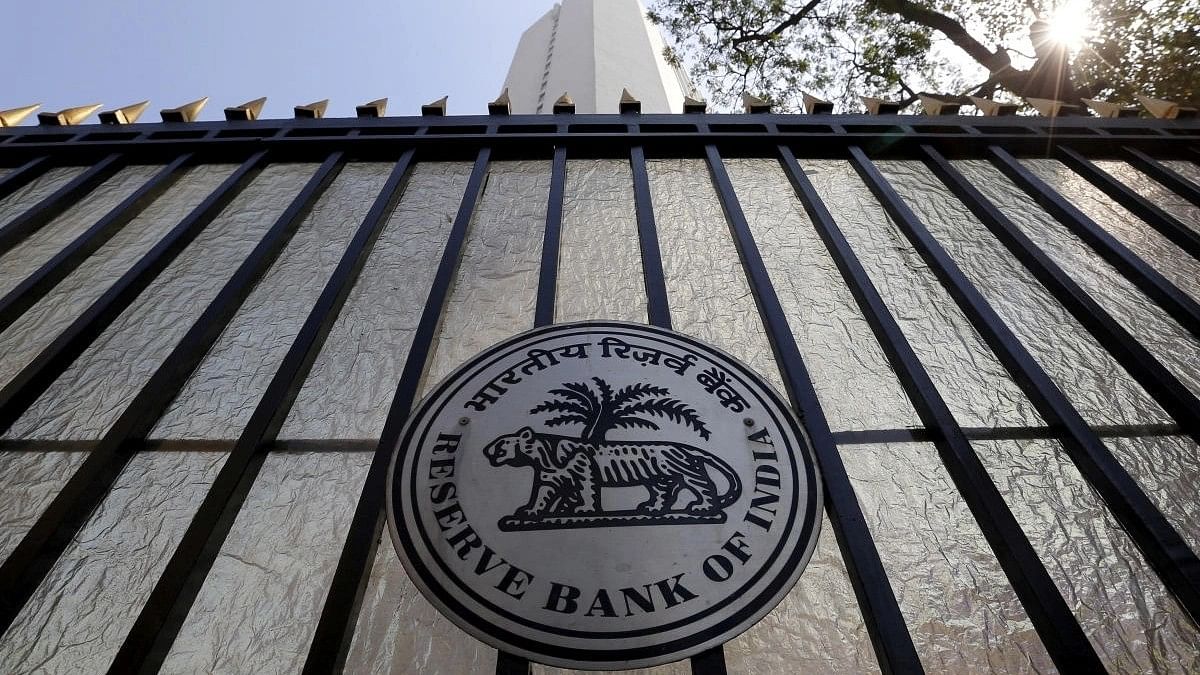
Reserve Bank of India (RBI).
Credit: Reuters File Photo
Mumbai: The Reserve Bank of India (RBI) on Friday retained its projection for retail inflation at 4.5 per cent for the current fiscal assuming a normal monsoon, while emphasising that uncertainties related to food price outlook warrant a close monitoring.
Consumer Price Index (CPI)-based retail inflation has been projected at 4.5 per cent with quarter-wise projections at 4.9 per cent in Q1 (April-June), 3.8 per cent in Q2, 4.6 per cent in Q3, and 4.5 per cent in Q4.
"The risks are evenly balanced," RBI Governor Shaktikanta Das said while announcing the bi-monthly monetary policy.
The Reserve Bank, which has been mandated to ensure inflation remains at 4 per cent (with margin of 2 per cent on either side), mainly factors in CPI while arriving at its monetary policy.
Das said CPI headline inflation softened further during March-April, though persisting food inflation pressures offset the gains of disinflation in core and deflation in the fuel groups.
Despite some moderation, pulses and vegetables inflation remained firmly in double digits.
Vegetable prices are experiencing a summer uptick following a shallow winter season correction. The deflationary trend in fuel was driven primarily by the LPG price cuts in early March.
Core inflation softened for the 11th consecutive month since June 2023. Services inflation moderated to a historic low and goods inflation remained contained.
"The exceptionally hot summer season and low reservoir levels may put stress on the summer crop of vegetables and fruits. The rabi arrivals of pulses and vegetables need to be carefully monitored," the governor said.
Das also noted that global food prices have started inching up. Prices of industrial metals have registered a double-digit growth in the current calendar year so far.
"These trends, if sustained, could accentuate the recent uptick in input cost conditions for firms," Das said.
On the other hand, he said, the forecast of above normal monsoon bodes well for the kharif season.
Wheat procurement has surpassed last year's level. The buffer stocks of wheat and rice are well above the norms.
These developments, Das added, could bring respite to food inflation pressures, particularly in cereals and pulses.
However, the outlook on crude oil prices remains uncertain due to geopolitical tensions.
"While the MPC (Monetary Policy Committee) took note of the disinflation achieved so far without hurting growth, it remains vigilant to any upside risks to inflation, particularly from food inflation, which could possibly derail the path of disinflation.
"Hence, monetary policy must continue to remain disinflationary and be resolute in its commitment to aligning inflation to the target of 4.0 per cent on a durable basis," said governor Das.
He emphasised sustained price stability would set strong foundations for a period of high growth.